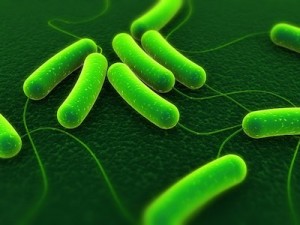 The source of the Chipotle outbreak that has sickened 39 people in Washington and Oregon is shiga toxin-producing E. coli, the Centers for Disease Control and Prevention (CDC) has confirmed in its initial report on the outbreak. Fourteen people have been hospitalized.
The source of the Chipotle outbreak that has sickened 39 people in Washington and Oregon is shiga toxin-producing E. coli, the Centers for Disease Control and Prevention (CDC) has confirmed in its initial report on the outbreak. Fourteen people have been hospitalized.
Shiga toxins cause serious illness by damaging red blood cells and can trigger complications such as hemolytic uremic syndrome (HUS) which leads to kidney failure. HUS can also cause seizure, stroke, coma and death.
Lab tests to determine the genetic fingerprint of the E. coli for all case patients are ongoing. Isolates from five people- two in Washington and three in Oregon had the same DNA fingerprint of shiga toxin-producing E. coli. At this time, the CDC does not believe Chipotle locations in other states are involved.
The case patients, who range in age from 1 to 67, ate at a number of different locations. Investigators are still trying to determine which ingredient was contaminated. Health officials say produce items are among the suspects including lettuce, onions, avocados, cilantro, onions, peppers and other ingredients in salsa.
On Monday, a lawsuit was filed on behalf of Washington woman who ate a burrito bowl from a Vancouver location on October 21. She began experiencing symptoms of an E.coli infection about three days later and was diagnosed with the infection.
The plaintiff is one of 29 people in Washington who developed E. coli infections after eating at Chipotle restaurants. Cases have been reported in Clark County, Cowlitz County, Island County, King County and Skagit County. In Oregon, 12 cases have been reported from Benton, Clackamas, Columbia, Deschutes, Multnomah, and Washington counties.
State health officials are urging anyone who ate at a Chipotle in Washington or Oregon between October 14 and October 23 and developed symptoms of an E.coli infection including abdominal cramps and diarrhea that can be bloody to see a doctor and mention exposure to E. coli. Other symptoms may include high fever and so much vomiting that you cannot keep liquids down and you pass very little urine. Antibiotics should not be used to treat E. coli infections as they can increase the severity of the illness.




